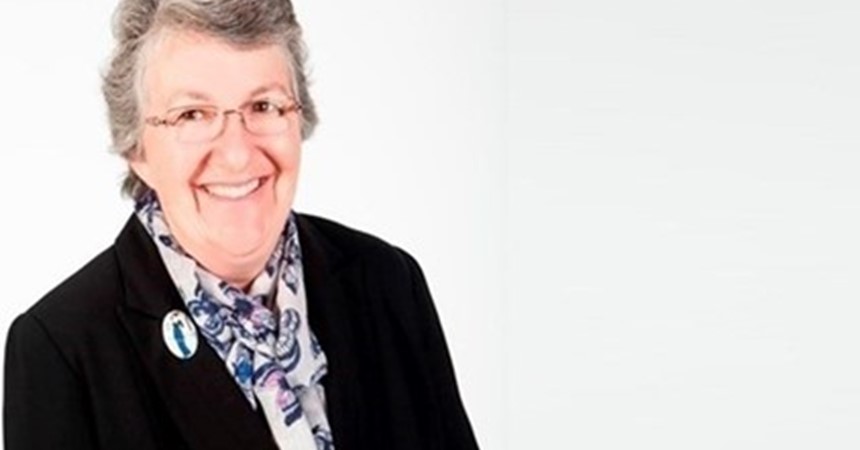Prince Philip and Cardinal Cassidy lived very long lives of love and service to the community as did Carla, though not as long. Two of the funerals took place at St Mary’s Cathedral in Sydney while Prince Philip’s funeral was held, under the strict restrictions of COVID in St George’s Chapel in Windsor Castle. I am very mindful that these religious, Christian funerals took place in our Easter Season when we recall Jesus’ resurrection from the dead and his appearances to his beloved disciples, and the hope we share of life beyond our earthly existence.
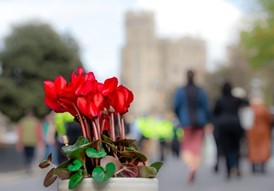
On Saturday night, while on my way to bed, the funeral of Prince Philip was screening on our television and I found that I was unable to retire, having been captivated by the sheer beauty and magnitude of Windsor Castle, the solemnity of the troops gathered on the lawns and the greatness of the chapel. His was a very simple funeral service, with the story of Martha, Mary and Lazarus chosen as the Gospel reading. The readings, prayers, and hymns spoke of his core beliefs.
the sheer beauty and magnitude of Windsor Castle, the solemnity of the troops gathered on the lawns and the greatness of the chapel. His was a very simple funeral service, with the story of Martha, Mary and Lazarus chosen as the Gospel reading. The readings, prayers, and hymns spoke of his core beliefs.

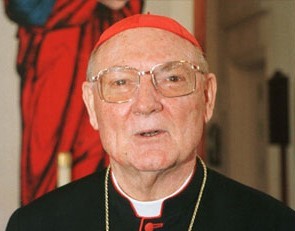 It was an honour for me to have met Cardinal Cassidy as I was struck by his humility and simplicity even though he had been the President of the Pontifical Council for the Promotion of Christian Unity. Prior to that he was in the Vatican diplomatic corps in Asia, Europe, Latin America and Africa. His greatest service was to the cause of ecumenism and interfaith dialogue.
It was an honour for me to have met Cardinal Cassidy as I was struck by his humility and simplicity even though he had been the President of the Pontifical Council for the Promotion of Christian Unity. Prior to that he was in the Vatican diplomatic corps in Asia, Europe, Latin America and Africa. His greatest service was to the cause of ecumenism and interfaith dialogue.
However, I invite you to discover the tributes to Carla, especially in the homily delivered by Archbishop Anthony Fisher in St Mary’s Cathedral in which he praised the women disciples who journeyed with Jesus and gathered at the foot of the cross and at his tomb from which he drew comparisons to Carla. Also, the words of her children and Quentin Bryce reflecting her creativity, courage and generosity. I share with you some of the words from the Financial Review, written by travel editor Fiona Carruthers:
Zampatti was the high priestess of the definitive Australian fashion statement. Apart from designing numerous annual collections since the 1960s, she was an astute businesswoman, energetic and creative who enjoyed all the arts; a loving mother, grandmother and wife; a philanthropist; a steadfast friend and mentor, and a strong advocate for women and migrants. Her funeral touched on all these passion points.
…But at times during the 75-minute service, her many achievements and the story of her remarkable rise – from nine-year-old Italian immigrant to Western Australia, who didn’t speak English, to cultured entrepreneur – felt overshadowed by the endless recollections of her first love: the clothes.
“I suspect the angels are about to get new uniforms,” Archbishop Anthony Fisher said in his homily.
Zampatti’s own take on life was shared at the beginning of the service.
“I think you learn more from tough times than from good times,” she said in a recent recording. “You learn what you can do, you learn your strength; so I think if you get stuck in a corner, don’t stay there … find a way to get out because … once you’re out of it, and you’re breathing again, you’ll feel much, much stronger and nothing will touch you.“
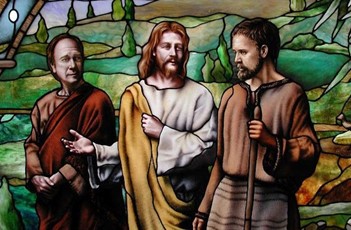
In our Easter season, this is how the disciples would have been feeling, they were perplexed by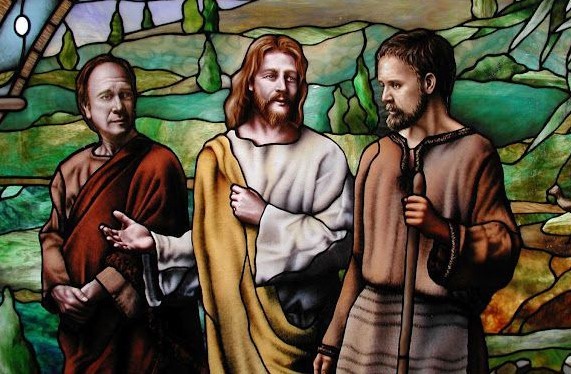
 what they felt about Jesus and his leaving them and yet they experienced him in the breaking of the bread (Luke 24:35–48)
what they felt about Jesus and his leaving them and yet they experienced him in the breaking of the bread (Luke 24:35–48)
The two disciples recounted what had taken place on the way, and how Jesus was made known to them in the breaking of bread.
During the past week I have been travelling around the diocese with Bishop Bill on his reflection days. I will not share with you the content of his conversations, because there are more to come over the coming two weeks, but to say that the following reading from the Acts of the Apostles (6:1-7), which was read at one of the daily Masses through the week reflects Bishop Bill’s message to us as we prepare for our diocesan synod:
As the number of disciples continued to grow,
the Hellenists complained against the Hebrews
because their widows were being neglected in the daily distribution.
So the Twelve called together the community of the disciples and said,
“It is not right for us to neglect the word of God to serve at table.
Brothers, select from among you seven reputable men,
filled with the Spirit and wisdom, whom we shall appoint to this task,
whereas we shall devote ourselves to prayer
and to the ministry of the word.”
The proposal was acceptable to the whole community,
so they chose Stephen, a man filled with faith and the Holy Spirit,
also Philip, Prochorus, Nicanor, Timon, Parmenas,
and Nicholas of Antioch, a convert to Judaism.
They presented these men to the Apostles
who prayed and laid hands on them.
The word of God continued to spread,
and the number of the disciples in Jerusalem increased greatly;
even a large group of priests were becoming obedient to the faith.
He, along with Pope Francis are inviting us to go out and be the good news of Jesus Christ:
The thing the church needs most today is the ability to heal wounds and to warm the hearts of the faithful; it needs nearness, proximity.
This is the mission of the Church: the Church heals, it cures. Sometimes, I speak of the Church as if it were a field hospital. It's true: there are many, many wounded! So many people need their wounds healed! This is the mission of the Church: to heal the wounds of the heart, to open doors, to free people, to say that God is good, God forgives all, God is the Father, God is affectionate, God always waits for us.
It’s true, we have to help and create organizations that help in this: yes, because the Lord gives us the gifts for this. But when we forget this mission, forget poverty, forget the apostolic zeal and instead, place our hope in these human means, the Church slowly slips into becoming an NGO, it becomes a beautiful organization: Powerful, but not evangelical, because it lacks that spirit, that poverty, that power to heal".
"He does not say to them: How great you are great, now on your next mission you should be better organized ...'. Only: 'When you have done all you have to do, say to yourself:' We are useless servants'. This is the apostle. And what would be the most beautiful praise for an apostle? 'He was a worker of the Kingdom, a worker of the Kingdom'. This is the greatest praise, because it means he has chosen Jesus’ path of proclamation: He goes to heal, to safeguard, to proclaim this good news and this year of grace. So that people rediscover the Father, to foster peace in the hearts of the people. (Pope Francis Homily, 5 Feb 2015)
Our diocesan synod is inviting us to go out, to open our doors, to proclaim Jesus as the love of God for us present in our world.
